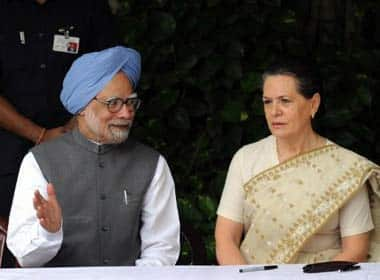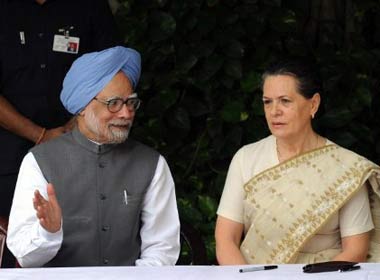Maharashtra’s Home Minister RR Patil wants to be the keeper of Mumbai’s morality. The city is known for its excesses and before the puritanical Patil came into the picture, it enjoyed itself rather too much. Mumbaikars drowned that extra peg they could do without, they hung around bars rather too long and spent what they could have saved for the future in dance bars. Some in the young community took that curious liking for hookah bars; many among them booked farm houses outside the city for night-long parties where narcotic drugs were suspected to be consumed. Many youngsters, and many adults too, thronged the dubious massage parlours to take advantage of that ‘special’ treatment. People had got brazen about their smoking habit and were puffing away in the taxis, too. Clearly, Mumbai needed a saviour. And the chosen one arrived from Sangli. Patil was in a hurry to fix the morality problem and he has been at it relentlessly since he took charge of the home ministry. Nothing horribly wrong with it though, the only problem is his obsession with moral policing left the more serious issues afflicting the city bursting at the seams with people and problems unaddressed. It was evident during the 26/11 attacks. The police were too busy getting the people out of their bad habits to take care of the loopholes in city’s security. Patil, the home minister then, was thrown out rather unceremoniously. But he was back soon to push his moral agenda. Apparently, not many in the political circles wanted him as the home minister. But he was backed by his party, the Nationalist Congress Party, aggressively. An arm-twisted Congress sought to hide its inability to drive a hard bargain by putting the blame on the “compulsion of coalition politics”. For two years after she took over as the railway minister, Mamata Banerjee remained engrossed in West Bengal politics, stationing herself in the state and plotting the downfall of the Left government. The functioning of the ministry suffered as its head stayed distracted and disinterested. The Congress-led UPA could do little to force her to stay focused on the ministry. [caption id=“attachment_43134” align=“alignleft” width=“380” caption=“It is not possible that the Congress’s top leaders were unaware of the 2G scandal brewing right under their noses. The degree of their complicity will be known later, but yet again the excuse from their side was the compulsion of coalition politics. Reuters”]
 [/caption] The excuse again was the compulsion of coalition politics. Her party was an important member of the UPA and had the crucial numbers without which the government would be in trouble. She had to be allowed to have her way and left alone with the ministry. DMK ministers helming the telecom ministry had been functioning independent of the Cabinet since UPA 1. It now comes to light that much before A Raja, Kanimozhi and company were suspected to have masterminded the country’s biggest scam, the 2G spectrum scandal. It was another minister from the party who had actually started it all. It was Dayanidhi Maran. It is not possible that the Congress’s top leaders were unaware of the scandal brewing right under their noses. The degree of their complicity will be known later, but yet again the excuse from their side was the compulsion of coalition politics. Prime Minister Manmohan Singh has referred to this expression many times after the scandal surfaced. Does coalition politics create compulsions that are insurmountable? Let’s deconstruct the beast called coalition a bit. Maharashtra’s Chief Minister Prithviraj Chavan would like us to believe that when both parties are almost equal in number of seats big compromises have to be made. In his state, it means the main party has to let go of the crucial finance and home portfolios. For the UPA, which is struggling to stay above the 272 mark, it means turning a blind to eye to what coalition partners do to their ministries. The end result is smaller parties in the coalition create their own fiefdoms – Trinamool Congress’ eagerness to hang on to the railway ministry, the DMK’s insistence on telecom and the NCP demanding the home portfolio in Maharashtra are a case in point. It’s patently unhealthy for general governance, but for the bigger parties surviving in power surely calls for many compromises. Smaller parties have their own operational dynamics which might be at odds with the government these are part of. These state-based parties have to reach out to and pamper their own constituencies in the districts and rural areas. Patil’s morality drive cannot be a case of individual preference. He is obviously catering to the sensibilities of his constituents back home. If Mumbai slips off the radar sometimes, it does not matter. The case of Mamata Banerjee is too clear – railways can wait, it is West Bengal that matters. Crucial ministries allow the parties to dole out favours to keep the vote base happy, and make money to keep the party going. It leaves the political big picture chaotic. With big parties following their own agenda – they also have to keep their constituents satisfied — and the smaller ones following their own, it is the cohesiveness in the approach to governance that suffers. Moreover, powerful allies tend to destabilise the command and control structure in the government. It’s been too obvious during UPA II. There does not seem to be an easy way out, particularly given the fragmented nature of our polity. The days of single-party rule are over. With both the major parties – the Congress and the BJP – gradually losing hold over the states, it’s going to be more complicated in future. With a major share of seats at their command, coalition partners will get more demanding. There will be more compromises, and by extension, more trouble for governance. Pre-poll agreement on a common minimum programme and promise to adhere to it strictly once in power could be one way out. But again, that requires the political will to be responsible to the country and stay beyond the politics of the vote base. In the era of aggressive coalition politics, that’s perhaps asking a bit too much.
[/caption] The excuse again was the compulsion of coalition politics. Her party was an important member of the UPA and had the crucial numbers without which the government would be in trouble. She had to be allowed to have her way and left alone with the ministry. DMK ministers helming the telecom ministry had been functioning independent of the Cabinet since UPA 1. It now comes to light that much before A Raja, Kanimozhi and company were suspected to have masterminded the country’s biggest scam, the 2G spectrum scandal. It was another minister from the party who had actually started it all. It was Dayanidhi Maran. It is not possible that the Congress’s top leaders were unaware of the scandal brewing right under their noses. The degree of their complicity will be known later, but yet again the excuse from their side was the compulsion of coalition politics. Prime Minister Manmohan Singh has referred to this expression many times after the scandal surfaced. Does coalition politics create compulsions that are insurmountable? Let’s deconstruct the beast called coalition a bit. Maharashtra’s Chief Minister Prithviraj Chavan would like us to believe that when both parties are almost equal in number of seats big compromises have to be made. In his state, it means the main party has to let go of the crucial finance and home portfolios. For the UPA, which is struggling to stay above the 272 mark, it means turning a blind to eye to what coalition partners do to their ministries. The end result is smaller parties in the coalition create their own fiefdoms – Trinamool Congress’ eagerness to hang on to the railway ministry, the DMK’s insistence on telecom and the NCP demanding the home portfolio in Maharashtra are a case in point. It’s patently unhealthy for general governance, but for the bigger parties surviving in power surely calls for many compromises. Smaller parties have their own operational dynamics which might be at odds with the government these are part of. These state-based parties have to reach out to and pamper their own constituencies in the districts and rural areas. Patil’s morality drive cannot be a case of individual preference. He is obviously catering to the sensibilities of his constituents back home. If Mumbai slips off the radar sometimes, it does not matter. The case of Mamata Banerjee is too clear – railways can wait, it is West Bengal that matters. Crucial ministries allow the parties to dole out favours to keep the vote base happy, and make money to keep the party going. It leaves the political big picture chaotic. With big parties following their own agenda – they also have to keep their constituents satisfied — and the smaller ones following their own, it is the cohesiveness in the approach to governance that suffers. Moreover, powerful allies tend to destabilise the command and control structure in the government. It’s been too obvious during UPA II. There does not seem to be an easy way out, particularly given the fragmented nature of our polity. The days of single-party rule are over. With both the major parties – the Congress and the BJP – gradually losing hold over the states, it’s going to be more complicated in future. With a major share of seats at their command, coalition partners will get more demanding. There will be more compromises, and by extension, more trouble for governance. Pre-poll agreement on a common minimum programme and promise to adhere to it strictly once in power could be one way out. But again, that requires the political will to be responsible to the country and stay beyond the politics of the vote base. In the era of aggressive coalition politics, that’s perhaps asking a bit too much.
Patil, Mamata, Raja expose the deficits in coalition politics
Akshaya Mishra
• July 18, 2011, 14:27:37 IST
Coalition politics is here to stay. But with all political parties obsessed with guarding their own interest and turfs, little thought is going into cohesive governance at the national level.
Advertisement
)
End of Article